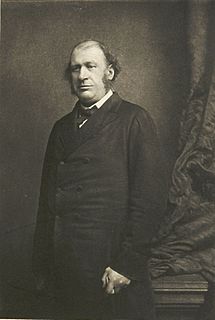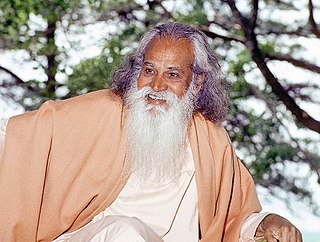A Quote by James Fitzjames Stephen
To me this question whether liberty is a good or a bad thing appears as irrational as the question whether fire is a good or a bad thing. It is both good and bad according to time, place, and circumstance, and a complete answer to the question, In what cases is liberty good and in what cases is it bad? would involve not merely a universal history of mankind, but a complete solution of the problems which such a history would offer.
Related Quotes
The question is not whether the good outweighs the bad. The question is whether or not the good excuses the bad. And, in my opinion, it doesn't. It never does. As long as wrongs are being commited, in any quantity, and in any ratio to the amount of good that is being done, it is both irresponsible and wrong not to bring awareness to it, and struggle to put an end to it.
When it comes to partisan politics, everyone is a hypocrite. And all they care about is whether it hurts or helps them ... Is it good or bad for the Democrats? Is it good or bad for the Republicans? Is it good or bad for Jews, or good or bad for blacks, or is it good or bad for women? Is it good or bad for men? Is it good or bad for gays? That's the way people think about issues today. There is very little discussion of enduring principles.
Early withdrawal from Iraq would result in unarguably, defeat and humiliation for the United States. There's no question. We would be defeated by definition. We would be humiliated in that defeat. I don't think there's any other way to argue it. Whether it's a good thing or a bad thing is a separate question.
The terms good and bad indicate no positive quality in things regarded in themselves, but are merely modes of thinking or notions, which we form from the comparison of things one with another. Thus one and the same thing can be at the same time good, bad, and indifferent. For instance, music is good for him that is melancholy, bad for him that mourns; for him that is deaf; it is neither good nor bad.
Science tries to answer the question: "How?" How do cells act in the body? How do you design an airplane that will fly faster thansound? How is a molecule of insulin constructed? Religion, by contrast, tries to answer the question: "Why?" Why was man created? Why ought I to tell the truth? Why must there be sorrow or pain or death? Science attempts to analyze how things and people and animals behave; it has no concern whether this behavior is good or bad, is purposeful or not. But religion is precisely the quest for such answers: whether an act is right or wrong, good or bad, and why.
The issue is not whether there are horrible cases where the penalty seems "right". The real question is whether we will ever design a capital system that reaches only the "right" cases, without dragging in the wrong cases, cases of innocence or cases where death is not proportionate punishment. Slowly, even reluctantly, I have realized the answer to that question is no- we will never get it right.
The same thing can be both good and bad. Whenever you speak of good, bad is also present. The world is a mixture of both. There is not good without bad. They are both sides of the same coin. Both are necessary. We have been given free will and discriminating capacity to select what is beneficial to us and to avoid what is detrimental to us. Even Cobra poison can be used as medicine.
And it's best if you know a good thing is going to happen, like an eclipse or getting a microscope for Christmas. And it's bad if you know a bad thing is going to happen, like having a filling or going to France. But I think it is worst if you don't know whether it is a good thing or a bad thing which is going to happen.

































